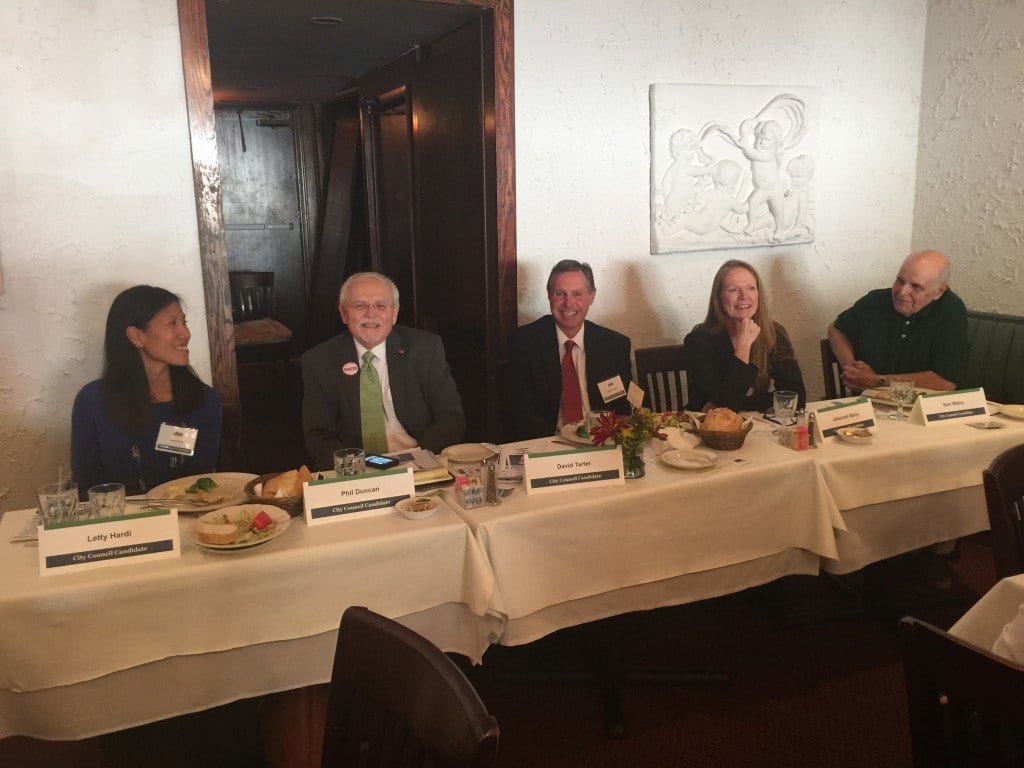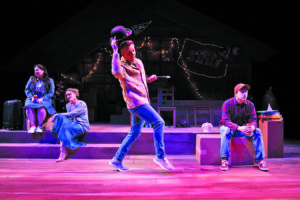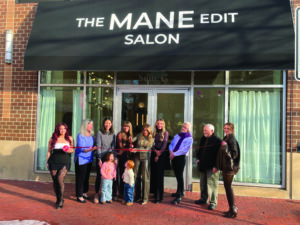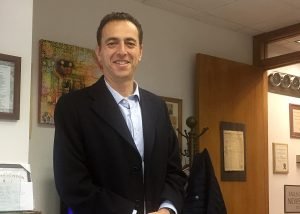
The five candidates seeking three seats being contested in the upcoming Nov. 3 election in the City of Falls Church faced off in front of a large turnout at the monthly luncheon of the Falls Church Chamber of Commerce Tuesday, and with the focus on economic development, the characterization of campaigns by one candidate seemed apropos: it is a choice between two “M’s,” moratorium versus momentum.
Incumbent Councilman Phil Duncan, seeking a second term on the Council, coined that phrase, and put himself solidly on the side of “momentum.” He, newcomer Letty Hardi and incumbent Mayor David Tarter all fall on that pro-development side of the divide, while Sam Mabry and Johannah Barry, both former Council members seeking another crack at the job, made no bones about their preference for a “moratorium” on mixed-use development, that form of economic development that has dominated the commercially-zoned areas of the City since 2002.
In addition to opening and closing remarks, the five candidates all responded to the same four questions — all centered on economic development issues — a refreshing change from other forum formats where they were each asked to respond to different questions, making it more difficult for both them and their audiences to delineate differences among them. This time it was far easier.
Mabry and Barry questioned whether mixed-use projects have been a net plus for the City, despite objective data showing they’ve contributed a net $2.8 million annual fiscal plus (after the costs calculated for educating school aged children and providing other services), created more customers for local businesses and gathering spaces for community events.
Mabry said that the jury will be out on this data until the City’s fiscal modeling includes the impact of new capital projects required as collateral factors, such as new schools, library and City Hall, are calculated in. Barry said that the City has reached a “tipping point” of too many people, and that it is not just a matter of fiscal, but aesthetic and social impacts, as well.
But as City Manager Wyatt Shields told the News-Press in an exclusive interview last week, there is not a one-to-one impact of economic and population growth and the need for new capital projects. They are being required, in cases of the need for a new or renovated City Hall and library, because those facilities are sorely out of date in many ways, and not simply because of overuse. Adding the need for capital projects to the fiscal model the City has been using since 2002 will not be expected to make a major difference, he said.
Tarter told the Chamber audience he is “very optimistic” about the City’s future through “high quality economic development that “grows the economic pie,” citing the investment that has already been designated to new lighting, crosswalk and biking improvements downtown, the addition of three new grocery stores for the first time in more than 30 years, and plans for transportation and parking improvements. Hardi argued for the ability to have both robust economic growth and to maintain Falls Church’s “small town character.”
Duncan said the keys to effective economic growth in the future lie in growing a customer base, capturing drive through traffic to orient to local businesses (with a parking garage, signage and other means) and the need for leaders to be present in the business community. He cited that he’d done more than 40 groundbreakings, ribbon cutting and other celebrations of business successes in his first term.
He hailed the “place making” impact of new buildings as “gathering places for the community” that “contribute to a better city.”
Hardi said there should be no “pause or time out” on progress in the City, but in doing that and maintaining the City’s unique character, “We can do both.”
Barry called for more information on what keeps small business in the City so as to better retain them.
Tarter said that for smaller businesses, the City “needs to keep inexpensive and funky spaces” for a more eclectic environment. He noted that in the City’s Small Area Plans, that the one-story retail strip anchored by the historic Brown’s Hardware is slated to remain, and not suffer redevelopment, for example.
He said that “there can be a better mix of uses” in the City’s commercial zones, but that growth is needed to pay for the schools.
Hardi noted that on average, new development since 2003 has increased the revenue value of properties by seven-fold over what was there before. She said a model for downtown development would not be a Tysons or a Ballston, but “be competitive in our own economic way,” so that more can “live, work and play” in the City.
Mabry reiterated that population growth makes it unclear whether the City is experiencing “real growth or is actually losing money.” He said that cost saving measures could include eliminating the need for separate chief financial officers for the City and the schools.
Barry said that combining functions and offering more parking and shuttle buses to the Metro stations could “lift all boats.”
Tarter hailed the role of the arts and cultural institutions in the City and what they can contribute to downtown vitality and development.
Duncan said he’s worked hard in his first term to keep the tax rate stable. “It’s been a tough fight but we’ve done an OK job,” he said. There need to be more housing options provided, including for smaller studio and one bedroom units with “not a lot of kid counts.”
Hardi said there needs to be a focus on less expensive workforce housing in keeping with a “smart growth” vision, and to build a new “world class high school” without overburdening taxpayers.













